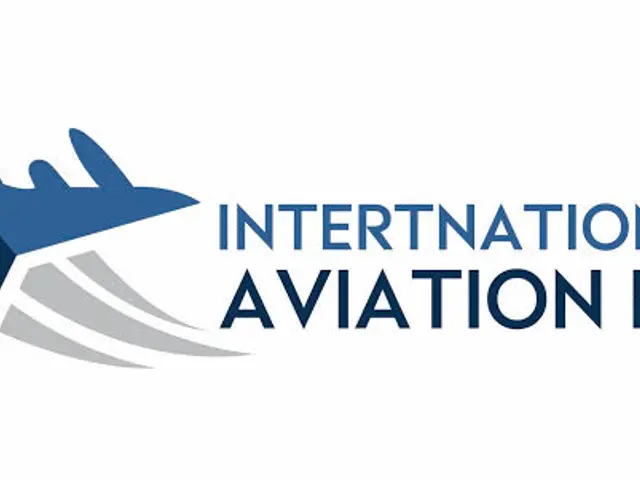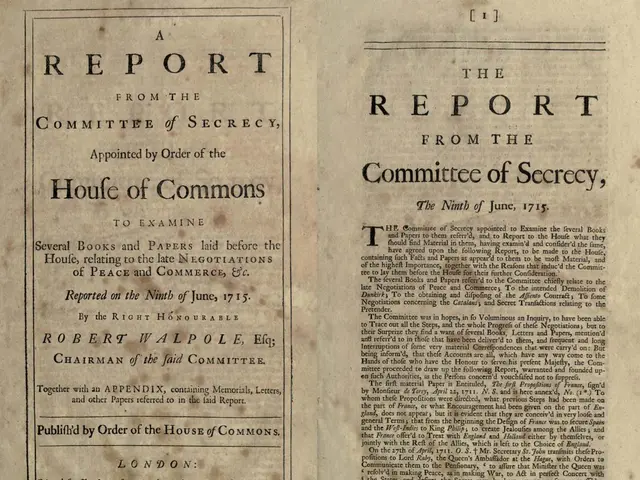Taxpayers Worry About Potential Reversal of Reeves' Tax Policies Following Extravagant Spending Review
UK voters are expressing concerns that Chancellor Rachel Reeves might betray Labour's election promises by increasing income taxes, according to a recent poll. As the government gears up for Wednesday's spending review, there's a strong possibility that they'll ramp up investments.
Sir Keir Starmer has asserted that the government can't generate growth solely through taxes, while ministers argue the spending review will show that austerity isn't back under Labour. However, over half of polled UK voters, as per Freshwater Strategy for City AM, expect the government to raise income taxes, and two out of five expect a VAT hike.
Most voters would rather see tax cuts and reductions in spending if it means a decrease in funding for public services. Reeves is set to unveil the government's spending commitments for the period between 2026 and 2029 on June 11, with an £86bn package earmarked for science and technology despite financial pressures on the public purse.
A U-turn on winter fuel payments will cost £1.25bn, putting a squeeze on Reeves' minor headroom. When asked about tax rises in an interview with GB News, Reeves stated, "We will set out all of the policies in the budget that is normal. But we wanted to announce today the level at which the winter fuel payment will be paid because announcing it now means that we can put the processes in place."
Analysts predict that further spending commitments could signal tax increases in the Autumn, to meet the strict fiscal rules set by Reeves. Financial analysts such as the Institute for Fiscal Studies' Paul Johnson suggest that the government might extend a freeze on income tax thresholds for a longer period, which could be considered a "stealth tax" that affects millions more Brits.
Oxford Economics forecasts that the government may have to raise taxes to cover debt service costs, which could rise by some £10bn by the end of the decade. Deputy Prime Minister Angela Rayner has reportedly proposed raising taxes on the wealthy and investors to curb borrowing.
Interestingly, around one in three voters support increasing taxes to allow the government to spend more. Defence is expected to be a significant focus of the upcoming Spending Review, with Reeves planning to outline how resources will be directed to improving the UK's military capabilities by 2027.
More than half of voters endorse Starmer's "ambition" to increase defence spending to three percent of UK GDP by the next parliament, with most hoping ministers in other departments would accept spending cuts to fund defence and other equipment.
Nato could demand the government to increase defence spending by more than Starmer has pledged, potentially setting up a conflict with the Trump administration. A proposed reversal of the two-child benefit cap, reportedly backed by Starmer and left-wing Labour members, would be opposed by most Britons, according to Freshwater Strategies' poll of 1,250 voters.
Interestingly, people on the lowest income are least likely to support removing the cap, while those earning above £60,000 are more likely to support the policy U-turn.
Method note: Freshwater Strategy interviewed 1,250 eligible voters in the UK aged 18+ online between June 6-8, 2025. The margin of error is +/- 2.8%. Data are weighted to be representative of UK voters.
Enrichment Data:There are clear indications that the UK government might raise taxes to fund its planned spending and public services. Here's a summary of current opinions and predictions:
- Financial Analysts Predictions:
- Spending Review and Fiscal Pressures: The recent Spending Review has outlined significant spending commitments, coupled with the UK's high debt and economic challenges, suggesting that tax rises are likely to meet fiscal rules and balance the current budget.[1][3]
- Potential Tax Targets: Analysts speculate that savings, pensions, and fuel duty could be targeted for tax increases. Additionally, the government might allow local councils to increase council tax by more than inflation.[3]
- Opinions of UK Voters:
- Public Perception: A significant number of UK voters fear income tax rises, with more than half anticipating this outcome.[5] There's also anticipation of a VAT hike among voters.[5]
- Tax Preferences: Despite these fears, most voters prefer reducing taxes and spending even if it means less funding for public services, demonstrating a preference for fiscal restraint over increased taxation.[5]
- Likely Tax Increases:
- Income Tax: There's considerable public concern about income tax rises, despite Labour's initial pledges against them.[5]
- VAT: A hike in VAT is another possibility, as it's a broad-based tax that could significantly increase revenue.[5]
- Other Taxes: Savings, pensions, and fuel duty are also being considered as potential targets for tax rises.[3]
Overall, while there's no firm confirmation from the government, financial analysts and public opinion suggest that tax increases are likely in the Autumn 2025 Budget to support the UK's spending commitments.
- The recent Spending Review indicates that the UK government might increase taxes to meet fiscal rules and balance the current budget, according to financial analysts.
- Analysts predict that income taxes, VAT, savings, pensions, and fuel duty could be potential targets for tax increases.
- Two out of five UK voters expect a VAT hike, and more than half of polled voters anticipate rises in income taxes, as per a Freshwater Strategy poll.
- Most voters prefer tax cuts and reductions in spending, even if it means less funding for public services, demonstrating a preference for fiscal restraint over increased taxation.
- If the government raises taxes to fund its spending and public services, analysts suggest that the Autumn 2025 Budget could be the likely time for these changes.





